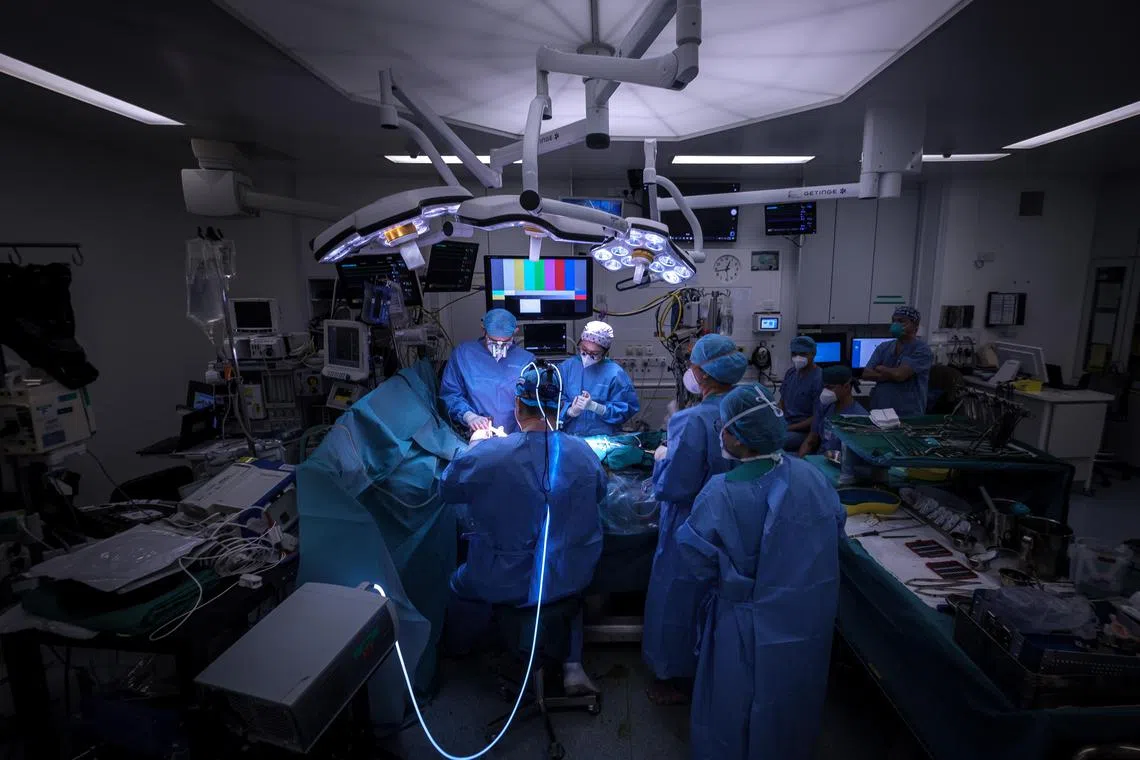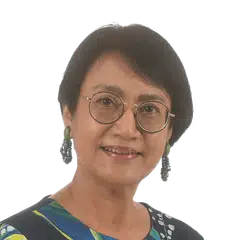Not forbidden for anaesthetists to leave surgery to take phone call but surgeons prefer those who don’t
Sign up now: Get ST's newsletters delivered to your inbox

Surgeons said that anaesthesiologists sometimes leave the theatre, but would prefer to work with someone who is present throughout a procedure.
ST PHOTO: GAVIN FOO
Follow topic:
SINGAPORE – Anaesthesiologists are trained to properly monitor a patient under anaesthesia, said two bodies representing the speciality, responding to queries about how some leave the operating theatre during an operation, for instance to take a phone call, which they are not expressly forbidden to do.
Noting that Singapore has had very few mishaps related to anaesthesia, the College of Anaesthesiologists and the Singapore Society of Anaesthesiologists said jointly: “Regardless of the level of risk of the surgery, the level of monitoring takes into account the clinical risk and medical complexity for the patient which is within the purview of the professional expertise of the attending anaesthesiologist.”
Surgeons, however, while acknowledging that anaesthesiologists sometimes do leave the theatre, said they would prefer to work with someone who is present throughout a procedure.
In January, an anaesthetist was suspended for 2½ years by the Singapore Medical Council (SMC)
The 64-year-old cancer patient, who had many other health problems, suffered an embolism on the table and died the following day.
The SMC said the patient’s already low chances of survival were further reduced by the anaesthetist’s delay in taking action.
A disciplinary tribunal agreed with the SMC that such behaviour “would shock the public and harm public confidence in the medical profession”.
Dr Islam Md Towfique had previously been suspended for six months by Parkway Pantai, which owns Gleneagles and reported the incident to the SMC.
In his defence, Dr Islam said his action “accorded with a common practice among anaesthetists in the private sector” and that “there are no official guidelines or notices regarding the making of phone calls while anaesthetists are taking care of their patients”.
Though the college and society of anaesthesiologists did not say whether doctors are permitted to leave in the middle of surgery, they noted: “For medical procedures requiring anaesthesia, the attending anaesthesiologist ensures a level of monitoring that is commensurate with the clinical risk and medical complexity for the particular patient. Low-risk procedures have a reduced propensity for intraoperative and postoperative adverse events.”
Low-risk surgery includes cataract surgery, lump excisions, gastroscopy, colonoscopy, reduction of dislocations, and circumcisions.
The National University of Singapore Yong Loo Lin School of Medicine did not respond to queries about the issue.
Several senior surgeons told The Sunday Times that if it were up to them, they would always choose an anaesthesiologist who is present throughout the procedure, whether high or low risk.
However, it is not always possible to choose, especially after regular hours, when fewer anaesthesiologists are available.
The surgeons said a number do leave the surgery to answer phone calls from other patients, particularly if they do not have an answering service. Some also spend time reading or playing games on their phones, especially during long procedures, when they are not actively needed for stretches of time.
One said “all surgeons know who these are”.
Gastroenterologist Desmond Wai said: “I choose my anaesthetists carefully. I only want to work with those whom I trust and who can take good care of my patients, especially when I focus on doing endoscopy. I expect the anaesthetist to be present all the time, till the patient wakes up.”
Dr Lawrence Ang, an obstetrician and gynaecologist, said: “The practice is for the anaesthetist to stay with the patient throughout for short procedures, leaving only for toilet breaks.
“For longer procedures of more than four hours, they may leave for short breaks to the tea room, but at any time there are instructions for close monitoring, they will return immediately if summoned. I don’t know whether there are protocols regarding their break times.”
All the surgeons agreed it is fine for an anaesthesiologist to leave to use the toilet, or get a drink or snack during long operations.
They might also be called out if a prior patient has had problems during the recovery transition.
“It is all right for him to leave if the patient in the theatre is stable and there is an anaesthetic nurse in attendance to monitor the patient,” said a surgeon.
The issue of anaesthesiologists leaving the operating theatre is not unique to Singapore.
In 2020, the American Medical Association’s Journal of Ethics carried an article titled “Should Anaesthesiologists And Surgeons Take Breaks During Cases?” that stated: “Anaesthesiologists regularly take breaks during operations, whereas surgeons do so more rarely and that such differing practices have resulted in conflicts.”
The American Society of Anaesthesiologists states: “Qualified anaesthesia personnel shall be present in the room throughout the conduct of all general anaesthetics, regional anaesthetics and monitored anaesthesia care. Because of the rapid changes in patient status during anaesthesia, qualified anaesthesia personnel shall be continuously present to monitor the patient and provide anaesthesia care.”


